HuffmanTree,哈夫曼树的原理和c++实现
一、什么是哈夫曼树
哈夫曼树又称为最优树.
通过权值来构造树,权值越大,离根节点越近
经常用于无损压缩算法
用于需要优化存储空间的场景
原理很简单,不多赘述
具体看百度百科的解释
需要注意 构建哈夫曼树不仅要值,还需要对应的权值
比如越常出现的,权值越大
二、构造哈夫曼树
通过权值来构造哈夫曼树
我画了几个图,具体过程如下
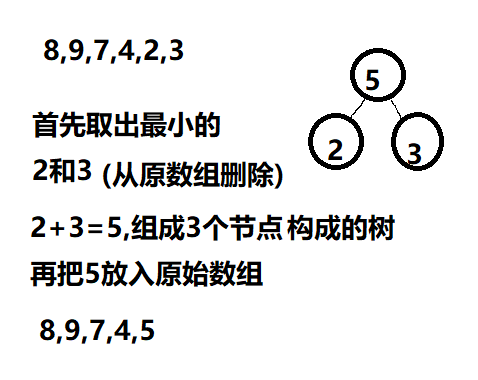
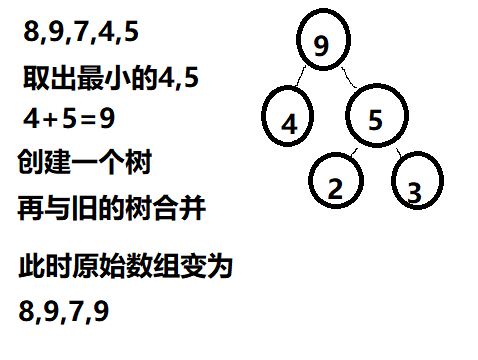
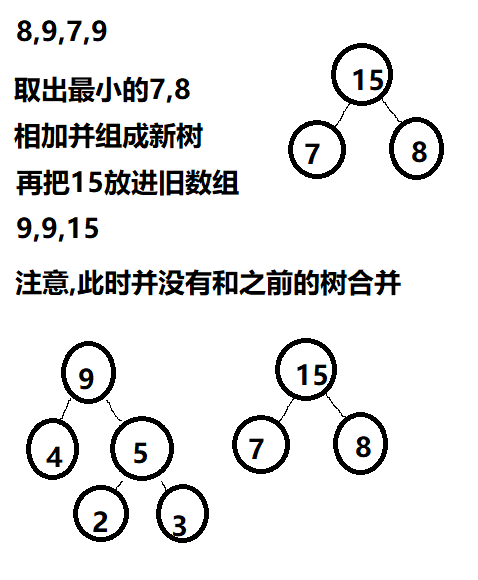
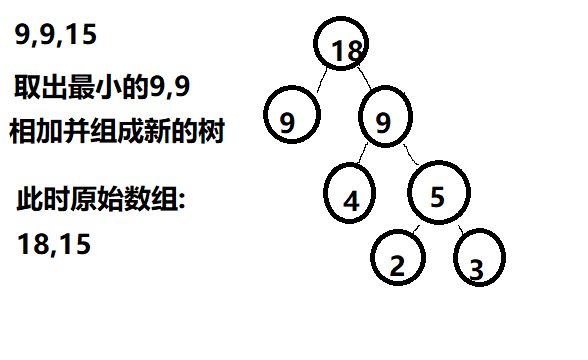
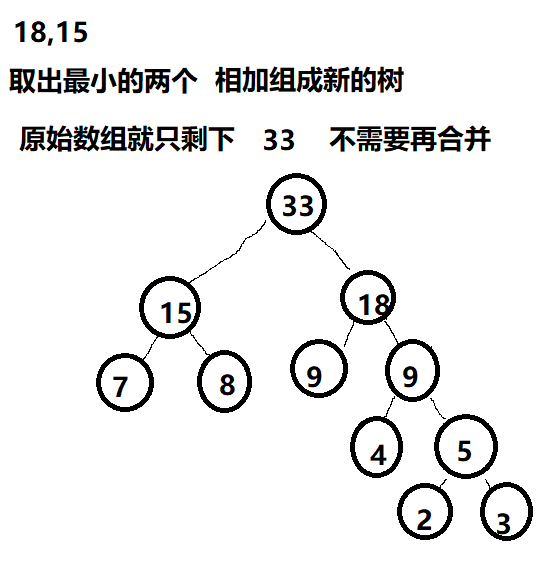
三、路径、编码、解码
上面通过权值构建了哈夫曼树,再将字符与权值对应起来
往左记作0 往右记作1
从根节点到各个叶子节点经过的0和1
就是该节点对应的路径
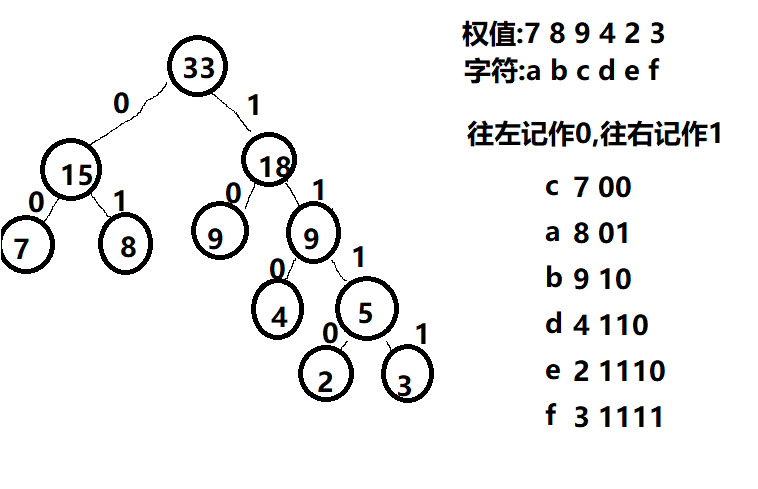
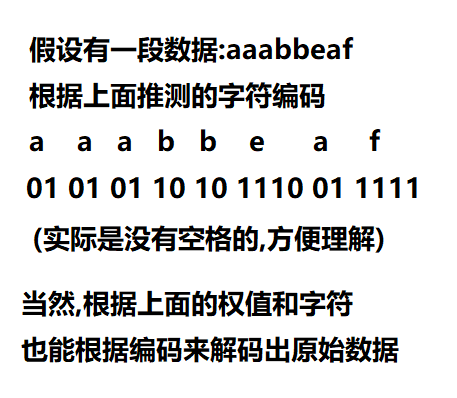
aaabbeaf编码:01010110101110011111
01010110101110011111解码:aaabbeaf
比如一个字符a原来占8位,通过哈夫曼编码后,就只占用2个位
但缺点是 权值较低的 占用字节会比较高,比如e,就占用4个位
四、代码
下面代码只是例子,编码解码并没有真的用位来表示,而是用字符串代替
HuffmanTree.h
#pragma once
#include<queue>
#include<iostream>
#include<algorithm>
#include<string>
using namespace std;
class HuffmanTree
{
struct Node
{
int weight;//权值
Node* left;//左孩子
Node* right;//右孩子
char value;//节点值
string path;//存放路径
};
//仅用于优先级队列比较
struct NodeCMP
{
bool operator()(Node* a, Node* b)
{
return a->weight > b->weight;
}
};
private:
Node* root = nullptr;
vector<pair<char, string>*>map;
public:
HuffmanTree(vector<int>& weight, vector<char>& value) {
createHuffmanTreeNode(weight,value);
createHuffmanTreePath();
}
//初始化节点
void createHuffmanTreeNode(vector<int>& weight, vector<char>& value) {
priority_queue<Node*,vector<Node*>, NodeCMP>que;//优先级队列构造树
for (size_t i = 0; i < weight.size(); i++){
Node* temp = new Node{ weight[i] ,nullptr,nullptr,value[i] };
que.push(temp);
}
while (que.size() >= 2){
Node* min1 = que.top();
que.pop();
Node* min2 = que.top();
que.pop();
Node* node = new Node{ min1->weight + min2->weight,min1,min2 };
que.push(node);
}
root = que.top();
}
//初始化路径
void createHuffmanTreePath() {
if (root == nullptr)return;
queue<Node*>que;
que.push(root);
while (que.size()){
Node* temp = que.front();
que.pop();
if (temp->left != nullptr) {
que.push(temp->left);
temp->left->path.append(temp->path + 0);
}
if (temp->right != nullptr){
que.push(temp->right);
temp->right->path.append(temp->path + 1);
}
if (temp->left == nullptr && temp->right == nullptr) {
map.push_back(new pair<char, string>(temp->value, temp->path));
}
}
}
string encode(string data) {
string result;
for (size_t i = 0; i < data.size(); i++) {
char ch = data[i];
for (size_t j = 0; j < map.size(); j++) {
pair<char, string>* mapData = map[j];
if (mapData->first == ch) {
result.append(mapData->second);
break;
}
}
}
return result;
}
string decode(string data) {
string result;
while (data.size())
{
for (size_t i = 0; i < map.size(); i++)
{
pair<char, string>* mapData = map[i];
if (data.find(mapData->second) == 0) {
result.push_back(mapData->first);
data = data.substr(mapData->second.size());
break;
}
}
}
return result;
}
};
main.cpp
#include<iostream>
#include<vector>
#includeHuffmanTree.h
int main()
{
vector<int>weight = { 8,9,7,4,2,3 };
vector<char>value = { 'a','b','c','d','e','f'};
HuffmanTree tree(weight,value);
string str;
str = tree.encode(aaabbeaf);
cout << str << endl;
str = tree.decode(str);
cout << str << endl;
return 0;
}



 浙公网安备 33010602011771号
浙公网安备 33010602011771号